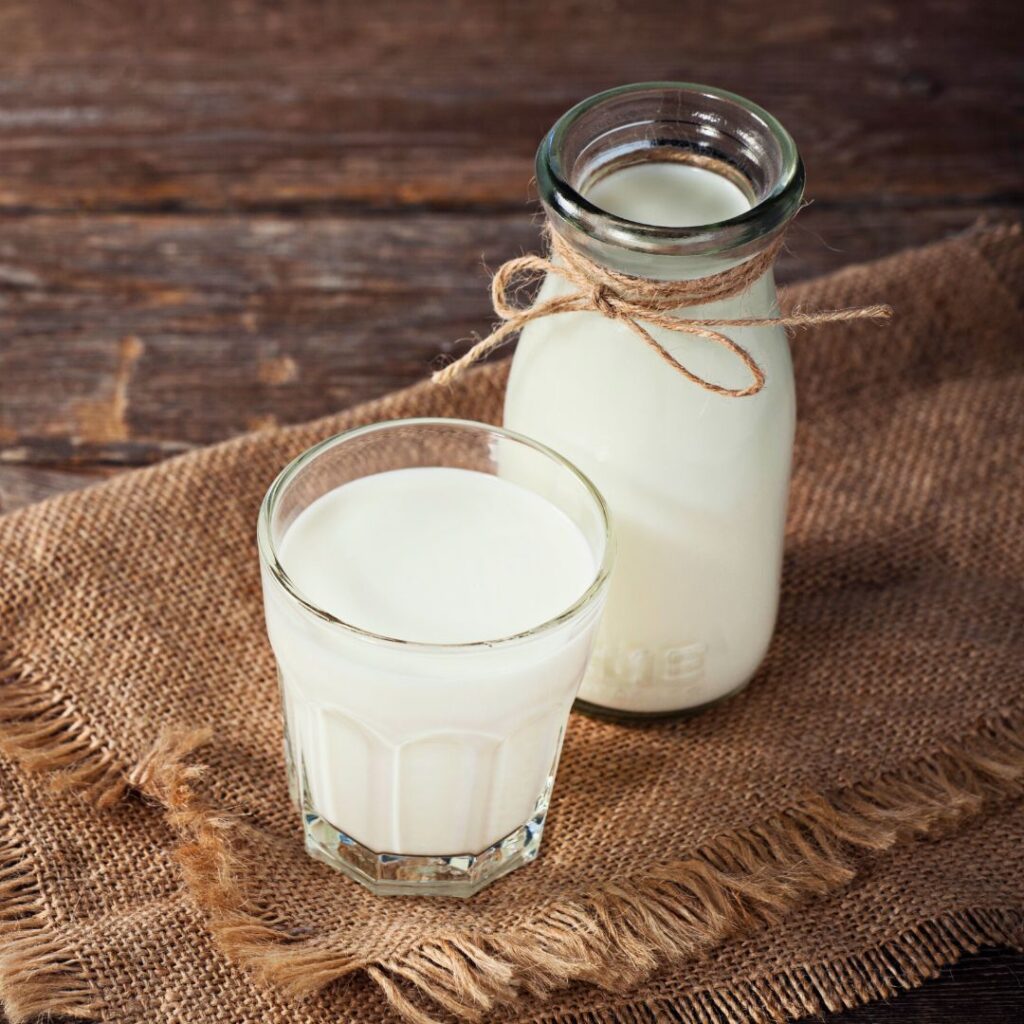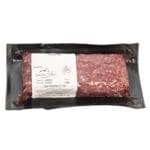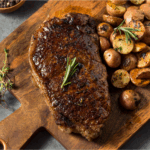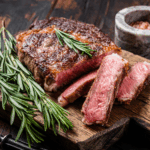
How can I know if Swiss Villa’s Raw Milk is Safe?
Does Swiss Villa’s raw milk provide a safe food source? A good question. And it deserves an in-depth answer. Food poisoning may cause death. And many folks only drink pasteurized milk because they fear the dangers. And the news media has said much about those dangers, especially of unpasteurized milk. Numerous states declare it unsafe and therefore ban it from consumers who believe the raw milk benefits. But really, have folks ever gotten sick from pasteurized milk too?
Sickness will happen
Candidly, as harsh as you may think it seems, we must understand that there is no food or air or surroundings anywhere on the planet that can be 100% guaranteed to never cause someone to get sick. And there never will be such in this life. We live in the land of the shadow of death. And that fact remains, whether we want to admit it or not. But then too, we ought to be careful at what we do in life to prevent sickness and death.
Possibilities of foodborne illness comes with all foods. Leafy greens. Tomatoes. Beans. Potatoes. Fish. Pasteurized milk. Soy, almond, and coconut milk substitutes. Nothing is exempt. Even the water you drink may become a bearer of contaminations that might sicken you. We spend billions of dollars annually due to food borne illness.
And even if we were to try to make everything sterile before ingesting it, we may possibly pick up some bug on our finger and unconsciously touch it to our lips and thus become sick! So then, let’s not worry ourselves sick with the “what if”s. But realistically, we ought to give careful consideration to what we are eating to avoid causing harm to our bodies where we can.
So then is raw milk dangerous?
Naturally raw milk is not dangerous. Cows were created to produce pure, clean, healthful milk. Raw milk from healthful cows presents wholesome food, free from pathogens.
It is only due to sickness in the cows or contaminations of the milk after milking that can prose the dangers associated with raw milk. When the cows feed in open pastures on natural grass diets, they stand at their best health. But as most present-day dairies focus on mass milk production via feeding grains, the stress levels increase and cow health deteriorates. This is why pasteurized milk ever came into existence in the first place. Instead of correcting the poor farming practices, along with the greed for monetary gain, pasteurization took over. And now we think that it must be the only way possible.
Cows from 100% grass diets live much longer and experience significantly better overall health. I have heard that cows living on 100% grass fed diets have 95% less health issues than those fed grains. I do not have a source for that statistic but I certainly do know that as the grains increase, so do the health problems in the cows.
And also consequently, the milk is of much better quality as well. Grass fed raw milk benefits surge when sourced from 100% grass feed cows.
What about Swiss Villa Raw Cow’s Milk?
Somatic cell count (SCC) is an indicator of the quality of milk. White blood cells known as leukocytes constitute the majority of somatic cells in question. The number of somatic cells increases in response to pathogenic bacteria like Staphylococcus aureus, a cause of mastitis. The SCC is quantified as cells per ml.
The cows producing Swiss Villa’s raw cow milk run a low somatic cell count. A good number for those counts that most dairies work with run less than 200,000 (which is considered low) and some even shoot for 150,000. The last report for the milk from the cows producing Swiss Villa raw milk in March, 2017 reported 140,000. Summer time counts generally run lower, more near the 100,000 range. Herds with high SCC range around 400,000. The laws allow milk with counts to go all the way to 750,000 before the milk is not considered acceptable. And so, would you consider that quality milk? Pasteurization kills 95% or so of the SCC.
Coliform tested on Swiss Villa Raw Milk
The coliform test on our raw milk also gives a good indicator as to the overall quality of the milk. If the coliforms run high, the likelihood of more serious pathogens increase. The farm tests EVERY batch of Swiss Villa raw milk when bottled, prior to being sent out to the stores. The state requires 2 tests per month for a raw milk dairy. We appreciate the extra care our farmer gives on this.
The regulations for the maximum coliforms for either raw milk or pasteurized milk are the same at the number of 10. Most pasteurized milk will have little if any after it comes out of the pasteurization. The container or piping, etc. after the pasteurization may be a cause for its presence. Whereas raw milk will likely have some coliform naturally present, due to the contact the milk is exposed to while the milking is taking place.
The coliform test of milk gives a generally clear report of the possibilities of pathogens that might sicken folks. But we cannot make that as an absolute guarantee. But let’s consider one bacteria in particular that may present itself without reflection in coliform test.
Campylobacter dangers addressed
Campylobacter is one of the most adverse pathogens that you might deal with in raw milk. And again, we want to understand that any food can bear pathogens to make us sick. Sometimes raw milk wrongly takes the blame. At times the sickness later turns out to have not been from the raw milk. A California dairy producing pasteurized milk produced milk with campylobacter and sickened numerous folks. Again, remember any food can become contaminated.
Handle your raw milk safely
Part of the answer will depend on you. How do you take it home from the store? What is your refrigerator temperatures? How clean are your hands when opening the milk jug or jar?
Did you cut up some raw fish or chicken, and then without cleaning your hands, grab the milk from the table and slip it into the fridge. You may have set up a path for pathogens to get picked up the next time you pull out the milk, open the cap, and unknowingly introduced the foodborne illness bacteria to the once pure raw milk. And then you might forget it sets on the table, warms up into the danger zone over the next couple hours until you see it and quickly place it back into the cool and imagine all is well. But remember the same thing could have happened to a jug of pasteurized milk. Or your orange juice!
And so again, we must remember sickness comes to us in numerous ways. We can be realistic about it or paranoid about it. And that might even make us more susceptible to health problems.
Choose Glass Bottle Milk for a safer transport
Glass milk bottles provide a cleaner packaging for the milk. Plastic will simply pose a bit more bacteria than glass, and so, choose glass! It tastes better that way too. I recommend choosing glass first, especially if you are concerned about the safety of the milk.
Raw Milk Consumer Advisory
The laws grant us the privilege to sell raw milk require the following on each container of milk we sell: Raw milk is known to contain harmful bacteria and may cause food borne illness. These bacteria can seriously affect the health of anyone who drinks raw milk, however they are particularly dangerous to pregnant women, children, the elderly and people with weakened immune systems. — Pa Department of Agriculture
How do I feel about raw milk in light of this statement?
How do I feel about this? Well I hope you understand that I do want to continue living and living in good health. But I believe that God created the earth and all that we have. He oversees all that transpires in my life and others’ lives. I commit my all to Him, knowing that He will not allow my trials of life to be greater than I can bear. Therefore I do not view death as the worst thing that could ever happen to me. I trust in the Provision of Salvation that God has provided for the issue of sin, man’s rejection of God.
Of course, I think I should do what I can to preserve my life and the lives of others. And I do not see that raw milk will endanger my life more than other foods I might grow in the garden or eat from the farm. I do believe it should be handled respectfully with cleanliness for the benefit and blessing of all. That constitutes true living and satisfaction. I feel raw milk benefits outweigh the dangers that can come from it. Yet I insist that we need a clean, healthy dairy to provide the raw milk.





